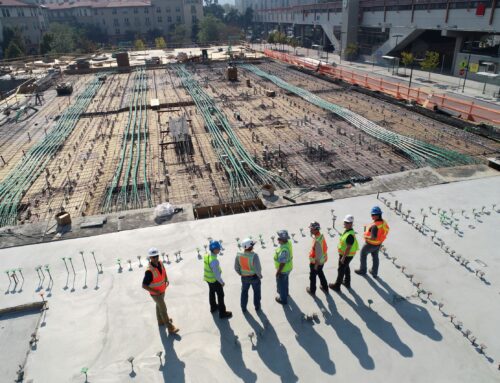Construction management is a multifaceted field that brings ambitious construction projects to fruition. Effective construction management ensures project completion – on time, within budget, and with the highest quality and safety standards. This article will explore construction management best practices, helping aspiring and seasoned professionals excel.
Thorough Planning and Preparation
Successful construction projects begin with meticulous planning and preparation. This step involves comprehensive project assessment, feasibility studies, risk analysis, and project schedules. A well-defined plan sets clear project objectives and minimizes potential disruptions and surprises during construction. Plus, having a plan saves time and money and protects your company’s reputation.
Effective Communication
Communication is the cornerstone of any successful construction project. Construction managers must communicate transparently with contractors, subcontractors, suppliers, and clients. To this end, regular meetings, progress reports, and digital communication tools can help keep everyone informed and aligned.
Establish a communication chain of command. It will keep the owner, the contractor, and the architect in touch. Choose the most effective means of communication, whether by email or a face-to-face meeting.
Hiring and Team Development
Building a skilled and motivated team is essential for successful construction management. Construction managers should select experienced professionals and foster an environment of continuous learning and growth. The team should include a C-level executive, architect, structural engineer, designer, project manager, construction superintendent, general supervisor, and site clerk.
Budget Management
One of the primary responsibilities of a construction manager is to ensure the project stays within budget. This feat involves accurately estimating costs, tracking expenses, and implementing cost-saving measures without compromising quality. Regular financial reports and cost analyses are indispensable tools for effectively managing a budget.
Risk Management
Construction projects are inherently risky, with potential challenges ranging from weather disruptions to unforeseen site conditions. According to The Construction Industry Institute, there are 107 risks to consider when planning a project. Construction managers must identify potential risks early, develop risk mitigation strategies, and have contingency plans in place. Regular risk assessments and proactive risk management can prevent costly delays and disputes.
Quality Control and Assurance
Maintaining high-quality standards throughout the construction process is non-negotiable. Construction managers must establish and enforce strict quality control measures, inspections, and quality assurance programs. Consistently delivering superior quality builds trust and a good reputation in the industry.
Safety First
Safety is paramount in construction management. Construction managers must prioritize all workers’ safety and implement the proper safety protocols and equipment. Regular safety meetings, training, and audits create a safety culture on the construction site. Workers must understand the risks their workplace entails. And since construction workers have one of the highest suicide risks, monitoring each worker’s mental health is another safety element.
Technology Integration
Embracing technology is crucial in modern construction management. Tools like project management software, Building Information Modeling (BIM), and drones can streamline operations, improve efficiency, and provide real-time project insights. Staying current with the latest construction technologies keeps you competitive.
Client Relationship Management
Building and maintaining strong client relationships is essential for repeat business and referrals. Construction managers should regularly update clients on project progress and address any concerns. Managers must be responsive to clients’ questions and ensure they feel valued and heard.
Documentation and Record Keeping
Thorough documentation is crucial in construction management. Keeping detailed records of all contracts, change orders, and communication can resolve disputes and claims if they arise. Documentation is also essential to maintaining legal and regulatory compliance.
Construction management is a challenging but rewarding field that requires a combination of technical skills, leadership abilities, and effective communication. By adhering to these best practices, construction managers can enhance project outcomes, minimize risks, and build a strong reputation in the industry.
Gillmann Services wants to be a part of building your team. Contact us today, and let us help you grow your company.






